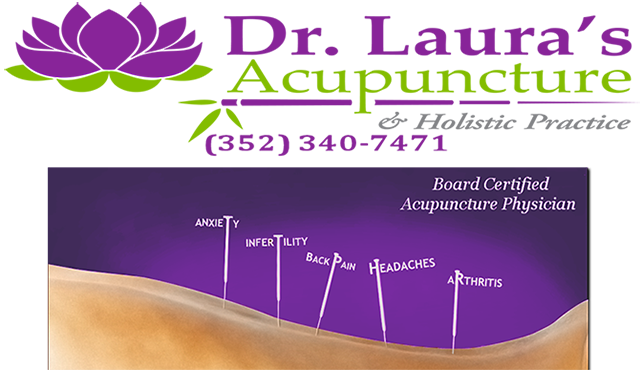What is acupuncture?
Acupuncture, one facet of Chinese Medicine that dates back over 3,000 years, is the ancient art and science of directly balancing and manipulating your energy levels to bring them into balance. In Chinese, this energy is called “Qi” (“chee”), and is the “life force” of the body. It is fundamental to both Eastern and Western medical science that optimum health is achieved through homeostasis, the optimum balance of the body’s systems. Oriental medicine directly balances the energy fields in the body, allowing the body’s systems to balance and heal.
Acupuncture acts directly on your energy levels (Qi) to bring them into balance, thereby promoting optimum health. It involves the use of extremely fine, sterile, disposable needles, placed in specific anatomical points. By needling, acupuncture stimulates the flow of energy (Qi) and blood throughout the body. One of many points may be targeted depending on your condition. These points correspond to energetic meridians that involve the whole body.
What conditions can acupuncture treat?
In China, acupuncture has a long history of success for many aliments, and in many Chinese hospitals, is practiced alongside Western medicine. In the United States, the acupuncture model has been extensively studied and proven to be effective at treating many aliments. This practical experience has provided information to doctors about the range of conditions for which acupuncture is beneficial. These include, but are not limited to: addictions, emotional and weight issues, numerous disorders of the following body systems: circulatory, eyes, ears, nose and throat, respiratory, gastrointestinal, gynecological, immune, musculoskeletal, nervous and urogenital.
How many acupuncture treatments do I need?
Laura Bertoncini, Acupuncture Physician, finds the number of treatments depends on the nature and length of your overall health and your specific condition. While some patients experience improvement immediately, others may experience relief in two or three sessions. Still others may require treatment that spans several weeks, months or more. Experience has shown that most conditions respond best with frequent visits initially.
What can I expect from my treatment?
Your treatment begins with a medical overview and a discussion about your health, lifestyle, digestion, sleep and more. There may be more questions asked than by your traditional western doctor. We ask ten questions about your lifestyle. Plan to wear loose, comfortable-fitting clothing allowing access to acupuncture points. During acupuncture sessions, most patients relax into a pleasant, pain-free, restful state. Between visits, pay close attention to any changes in your health so that we may address these during your next visit.
What are the mechanisms of action?
Several processes have been proposed to explain acupuncture’s effects, primarily those on pain. Acupuncture points are believed to stimulate the central nervous system (the brain and spinal cord) to release chemicals into the muscles, spinal cord, and brain. These chemicals either change the experience of pain or release other chemicals, such as hormones, that influence the body’s self-regulating systems. The biochemical changes may stimulate the body’s natural healing abilities and promote physical and emotional well-being.
There are three main mechanisms:
- Conduction of electromagnetic signals1:
Western scientists have found evidence that acupuncture points are strategic conductors of electromagnetic signals. Stimulating points along these pathways through acupuncture enables electromagnetic signals to be relayed at a greater rate than under normal conditions. These signals may start the flow of pain-killing biochemicals, such as endorphins, and of immune system cells to specific sites in the body that are injured or vulnerable to disease. - Activation of opioid2 systems:
Research has found that several types of opioids may be released into the central nervous system during acupuncture treatment, thereby reducing pain. - Changes in brain chemistry, sensation, and involuntary body functions:
Studies have shown that acupuncture may alter brain chemistry by changing the release of neurotransmitters3 and neurohormones4in a good way. Acupuncture has been documented to affect the parts of the central nervous system related to sensation and involuntary body functions, such as immune reactions and processes whereby a person’s blood pressure, blood flow, and body temperature are regulated.
1 Electromagnetic Signals
Every living organism on our planet is surrounded with energy in form of the signal environment. This energy is produced by him as result of essence of his living and survival. Man itself is emanating energy; however, it is necessary to remember how weak this field is. Signals emitted by the brain constitute one component of this energy. It concerns Extremely Low Frequencies – ELF.
2 Opioids
They are psychoactive chemicals that resemble morphine or other opiates in its pharmacological effects.
3 Neurotransmitters
They are the chemicals that allow the transmission of signals from one neuron to the next across synapses.
4 Neurohormones
They are secretions of endocrine glands that are transmitted by the blood to the tissue on which it has a specific effect.
